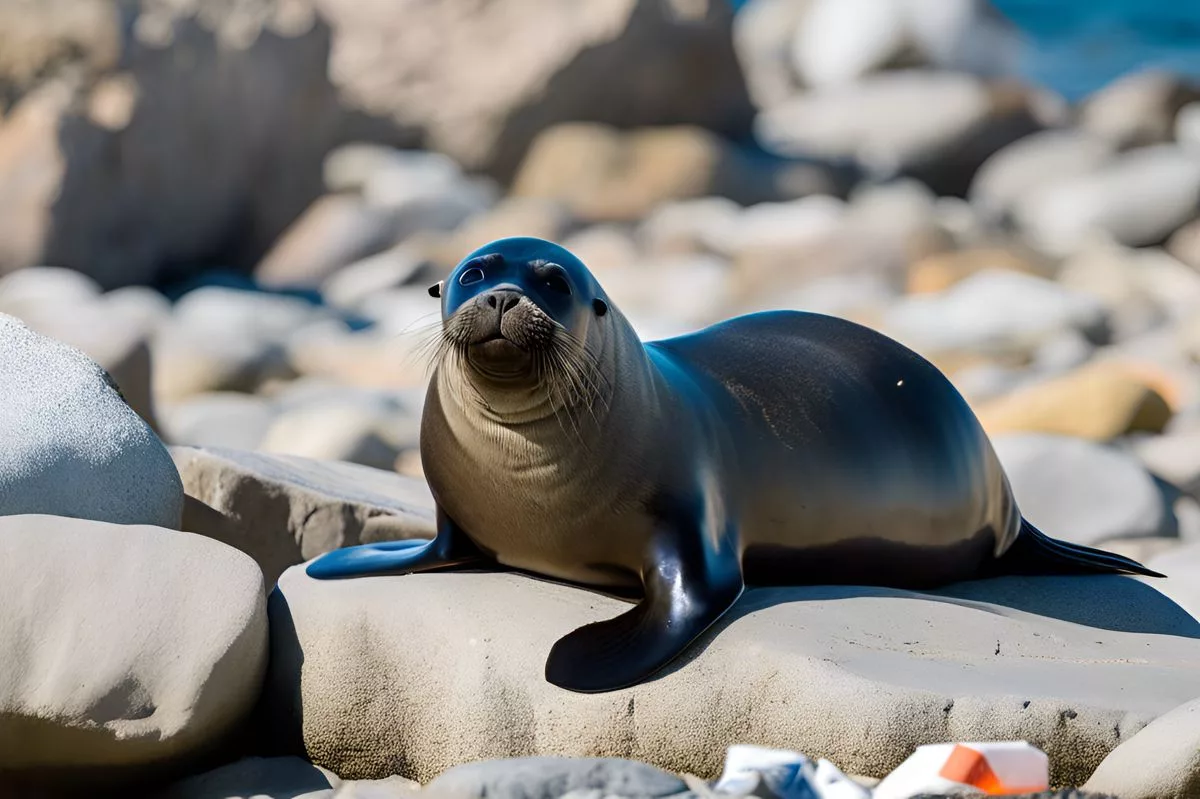Rising cases of rabies in Cape Fur Seals in Cape Town are alarming beachgoers, with 24 confirmed cases since May 2024. Experts urge people to stay away from seals and report any unusual behavior. If bitten or scratched, it’s crucial to seek medical help immediately. Vaccinating pets is also very important to keep them safe. As World Rabies Day approaches, the city emphasizes the need for public awareness and safety when interacting with these coastal creatures.
What is the risk of rabies in Cape Fur Seals in Cape Town?
The rabies virus is now endemic in Cape Fur Seals in Cape Town, with 24 confirmed cases since May 2024. Beachgoers should avoid close contact with seals, report unusual behavior, and seek immediate medical attention if bitten or scratched. Vaccination for pets is essential.
An Emerging Threat on the Beaches
As World Rabies Day approaches on Saturday, September 28, 2024, the City of Cape Town alerts the public about an alarming development: the rabies virus has now become endemic in Cape Fur Seals. This new reality stresses the need for heightened awareness among beachgoers and those who frequent the coastal areas.
The City has joined forces with several prominent organizations—including the Department of Forestry, Fisheries, and the Environment (DFFE), SANParks, Cape of Good Hope SPCA, Two Oceans Aquarium Foundation, Sea Search, and Hout Bay Seal Rescue Centre—to launch the Rabies in Cape Fur Seals Response Plan. This comprehensive initiative aims to mitigate the impact of the rabies virus on the seal population and minimize the risk of human exposure.
Since the initial rabies cases in May 2024, there have been 24 confirmed instances of the virus in seals. Retrospective testing has also revealed 14 positive brain samples dating back to August 2022. Despite the growing number of cases, the full extent of rabies’ impact on the seal population remains unclear. This marks the first known occurrence of rabies in a marine mammal, presenting numerous challenges and uncertainties for scientists and authorities.
Public Health Measures and Safety Precautions
Despite the rise in rabies cases among seals, health officials do not advise pre-exposure rabies vaccination for the general public. However, immediate medical attention and Post Exposure Prophylaxis (PEP) for rabies are crucial for anyone bitten or scratched by a seal. Dog owners also bear the responsibility of ensuring their pets’ rabies vaccinations are up to date and must keep their dogs away from seals to prevent any potential transmission.
In an innovative approach, some seals frequently interacting with humans have been vaccinated against rabies. Nevertheless, feeding seals remains strictly prohibited. Activities involving seal feeding—such as paying, participating, taking photographs, or recording videos—are illegal and can result in arrests.
The public is strongly advised to avoid all coastal wildlife, including seals, regardless of their rabies status. It is illegal to approach, touch, handle, harass, or interfere with any coastal wildlife. Seals are a natural part of the coastline, often seen on beaches and inshore areas. If a seal displays unusual or aggressive behavior, people should retreat or exit the water if they are swimming, surfing, or diving.
Reporting Unusual Behavior and Broader Implications
The City of Cape Town has provided several contact numbers for the public to report any unusual seal behavior. These contact points include:
- Cape Town: City of Cape Town at 021 480 7700, Cape of Good Hope SPCA at 021 700 4140
- West Coast: CapeNature at 083 236 2924
- Overberg: CapeNature at 083 236 2924
- Southern Cape: Plett Stranding Hotline at 079 463 4837, CapeNature at 044 533 2125
- Eastern Cape: Bay World Stranding Hotline at 071 724 2122
- Table Mountain National Park at 021 783 0234
This concerted effort aligns with global actions to combat rabies, a viral disease that has affected humans and animals for centuries. Belonging to the Lyssavirus genus, rabies can cause acute encephalitis in its hosts. The historical and cultural significance of rabies is substantial, influencing everything from ancient literature to modern horror films.
Louis Pasteur’s development of the rabies vaccine in the late 19th century revolutionized rabies prevention and laid the groundwork for modern prophylactic measures. Despite this progress, rabies remains a significant public health issue, particularly in areas with limited healthcare resources.
The Role of Marine Biology and Interdisciplinary Efforts
The discovery of rabies in Cape Fur Seals opens new research avenues in marine biology. The health of marine mammals has gained increasing attention, especially with the rise of zoonotic diseases—those that transfer from animals to humans. The Cape Fur Seal, native to the south and southwest coastlines of Africa, plays a crucial role in the marine ecosystem. Understanding how rabies affects these seals could provide valuable insights into the virus’s adaptability and evolution.
Cape Town’s collaborative approach with various partners highlights a growing trend in wildlife conservation and public health. The cooperation among government agencies, non-profit organizations, and academic institutions is essential in tackling complex ecological and health challenges. This model could serve as an example for other regions facing similar issues.
Public education and awareness are vital components of managing this crisis. Health campaigns that inform and empower communities can significantly reduce the risk of disease transmission. By promoting a culture of vigilance and responsibility, authorities can better manage the interaction between humans and wildlife.
A Global Call to Action on World Rabies Day
As World Rabies Day is observed, the focus extends beyond Cape Town, serving as a reminder of the ongoing global struggle against rabies and the importance of intersectoral collaboration. Whether through vaccination campaigns, public education, or scientific research, every effort contributes to the goal of eradicating this ancient yet persistent disease.
The fight against rabies underscores our interconnectedness with the natural world and challenges us to reconsider our interactions with wildlife. On this World Rabies Day, the commitment to protecting both human and animal health is renewed, recognizing that our well-being is intricately linked to the health of our planet.
Unified efforts and shared knowledge propel us closer to a world where rabies is no longer a threat. Although the journey may be long, the objective remains clear: a future free from the burden of rabies.
“`markdown
What is the current situation regarding rabies in Cape Fur Seals in Cape Town?
Since May 2024, there have been 24 confirmed cases of rabies in Cape Fur Seals in Cape Town, marking the virus as endemic in this species. This alarming situation prompts beachgoers to avoid close contact with seals and to report any unusual behavior.
What should I do if I am bitten or scratched by a seal?
If you are bitten or scratched by a seal, it is crucial to seek medical attention immediately. Health officials recommend Post Exposure Prophylaxis (PEP) for rabies, which is essential for anyone exposed to a potentially rabid animal.
Are there any public health measures in place to manage the rabies outbreak?
The City of Cape Town has implemented a Rabies in Cape Fur Seals Response Plan in collaboration with various organizations. This plan aims to mitigate the impact of rabies on the seal population and reduce the risk of human exposure.
How can I protect my pets from rabies?
It is essential to keep your pets’ rabies vaccinations up to date. Additionally, pet owners should avoid allowing their dogs to approach seals or any coastal wildlife to prevent potential transmission of the virus.
What should I do if I observe unusual behavior in seals?
If you notice any unusual or aggressive behavior in seals, you should retreat to a safe distance. You can also report such behavior to the appropriate authorities using the contact numbers provided by the City of Cape Town.
How does this rabies outbreak affect marine biology and public health?
The emergence of rabies in Cape Fur Seals highlights the growing concern over zoonotic diseases—those that transfer from animals to humans. Understanding this outbreak can provide valuable insights into disease adaptability and evolution, and emphasizes the importance of interdisciplinary efforts in wildlife conservation and public health.
“`












